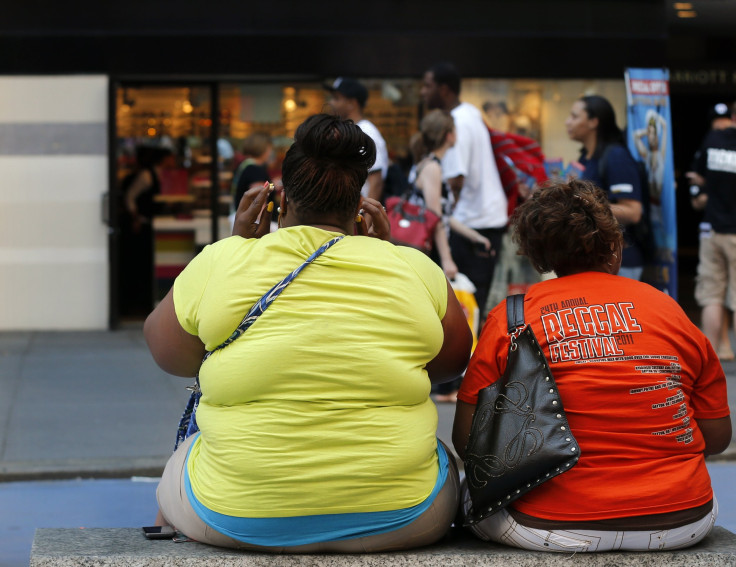Obese Women Who Need to Lose Weight Are Less Likely To Lose It

A study on obesity was conducted by researchers from Vanderbilt University School of Medicine in Nashville, Tennessee. The researchers found a strong association between disinhibition (detrimental eating and behavioral characteristics) that limits successful weight loss, and impaired metabolism among obese women.
"Obese females those who are particularly unlikely to lose weight are also those who need to lose weight the most," lead study author Julia Passyn Dunn, instructor in the Department of Medicine of Vanderbilt University School of Medicine in Nashville, Tennessee, said in a press statement. "Those with an eating/behavioral characteristic that especially limits their weight loss also have the most derangement of their metabolism from their elevated weight."
Previous studies have highlighted that a wide range of behavioural and metabolic characteristics in obese people directly affect their ability to lose weight. Disinhibition is an eating characteristic common in obesity that occurs with poor response to weight loss interventions.
For the study, researchers examined 17 non-diabetic, weight-stable females with obesity whose average age was in the upper 30s. Eight women had low disinhibition and nine had high disinhibition. Both groups were similar in body mass index, total body weight, body fat mass and muscle mass. The participants were made to complete the Three Factor Eating Questionnaire (TFEQ) which allowed researchers to measure the eating characteristics disinhibition, restraint and hunger. Researchers also measured their binge-eating behaviour using the Binge Eating Scale (BES). The participants completed the Beck Depression Inventory-II (BDI-II) and those with clinically relevant depression were excluded from the study.
The women participants also underwent a five-hour, 75-gramme oral glucose tolerance test to estimate insulin sensitivity; their fasting insulin, leptin and acyl ghrelin levels were measured; and their insulin sensitivity index (SI) for glucose disposal was estimated. Researchers found that though there were similarities in body weight and composition, the participants with high disinhibition scores were twice as insulin-resistant as those with low disinhibition. Fasting insulin, leptin and acyl ghrelin levels were comparable in both groups.
"When comparing females with obesity and similar body weight and composition, high disinhibition occurs with more severe insulin resistance and more symptoms of depression," said Dunn. "In patients with type 2 diabetes mellitus, those with increased disinhibition scores have longer disease duration and poorer quality of life compared to patients with lower disinhibition."
Findings of the study were presented on Thursday, March 5, at ENDO 2015, the annual meeting of the Endocrine Society in San Diego. The study was funded by The National Institute of Environmental Health Sciences and the National Institute of Diabetes and Digestive and Kidney Diseases.
To contact writer, email: sammygoodwin27@gmail.com





















